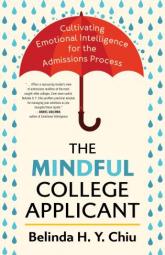Admit, defer, deny: early admission news
December 7th, 2021It’s the most wonderful time of the year, but for high school students awaiting admission notifications, the time couldn’t be dragging any more slowly. In the month of December, many students who applied early will receive one of these three responses…admit, defer, deny. So what next steps should you take after hearing the news?

Admit
If you are accepted into your top choice school, hooray! Follow the school’s instructions carefully to determine a follow-up plan.
Deny
It is not easy hearing “no,” especially for something you are so passionate about. Allow yourself time to feel without judgment. There is a mourning period and you will get through this. It may be difficult to think about right now, but there are many wonderful choices out there that might actually be a better fit for you. Each college on your list is a great option and you still have time to add a new college or two.
Defer
Getting deferred by your top choice school can be disappointing and the response to deferral is not so cut and dried. You will find many opinions on how to respond when you receive this news, but I think the article linked below from Niche says it best. The advice given from author Michaela Schieffer provides simple steps to follow in this scenario.
Article linked below from Niche, written by Michaela Schieffer published on January 21, 2019
How to Increase Your Chances of Getting Into College if You’ve Been Deferred
At some point in your senior year, there will be a moment when your mailbox (or email inbox) holds your future, determining the location of the next four years of your life. This anticipation can quickly turn to disappointment if the letter from your top-choice colleges, to which you applied early decision, is anxiously opened, only to view the word “deferred” in place of your anticipated acceptance.
Thankfully, the college admissions game is not black and white. While a deferral is certainly not the preferred answer, nor does it indicate an acceptance, it should not be considered a rejection. A deferral from an early decision cycle refers to the decision by the school to consider your application in the regular decision cycle. In short, the school is offering you another chance at admission.
Early action deadlines are designed to offer admission to a limited number of students, in order to allow the admissions department to better plan for the upcoming regular decision cycle. This preliminary round allows the admissions team a chance to evaluate their early admits in light of their projected goals for the academic year. If their goal is to admit a well-rounded freshman class with unique perspectives, the department will need time to pause and regroup before the regular decision round begins.
Tagged: Admission decision, Applications
Emotional IQ and the connection to college applications
February 18th, 2020Shrop Ed advisees have grown accustomed to hearing me stress the importance of developing as a person first, maximizing potential and impact, which results in the secondary benefit of becoming a stronger college candidate. This is a lifelong skill, not just for the sake of college admissions but, more importantly, for everything that follows.

Mindfulness, the practice of being present, is a valuable tool that strengthens self-awareness, self-management and empathy (emotional intelligence). Having a high emotional IQ is linked to long-term success and according to Belinda H. Y. Chiu, author of the book The Mindful College Applicant, it can also help you through the college admission process. The article linked below is a Q and A with Chiu, highlighting ways to cultivate these important skills during this crucial time.
Article referenced below from Inside Higher Ed, published January 13, 2020 written by Scott Jaschik
‘The Mindful College Applicant’
College admissions has had a tough year of scandal and embarrassing headlines. Belinda H. Y. Chiu offers a solution: for college applicants to be more “mindful.”
Drawing on her experience in the high school and college sectors, she outlines her vision in The Mindful College Applicant: Cultivating Emotional Intelligence for the Admissions Process (Rowman & Littlefield). She responded to questions about the book via email.
Q: This past year has seen a college admissions scandal and plenty of other reports of admissions favoring the wealthy. What makes you think higher education is going to change?
A: From ancient times in Greece and India to today, higher education — what is taught, how it’s taught and who is taught — has been constantly changing. And factors like wealth, class, gender and race have always been at play. Many institutions of higher education are making concerted efforts to broaden outreach and access by making standardized tests optional or committing to admit more students [who are] first in their family to attend university, and to strengthen financial aid by eliminating loans or tuition for qualifying families. Of course, there’s still much more to do to address inequities. But if change is the one constant, that means change is always possible.
Read more at Inside Higher Ed>>
Tagged: Admission decision, Applications, College, Personal characteristics
You hit submit, now what?
February 4th, 2020Regular decision applications have been sent off for review and early action deferrals will soon be reviewed again: the waiting game is in full force. For some high school seniors who sent their applications in the fall, a lot can happen between their submission and the final decision in March. Is there anything applicants can do to increase their chances of admission during this downtime? Sure!
When significant progress has been made since the application was sent off, updating your profile can make a difference in the outcome. Many times students are able to use the update link through their portal on the college’s website and I believe this is always the best path if offered. If not, emailing one’s admission contact or the regional admission officer is wise, with clarity in the subject line, such as “Update information for (full name), Fall 2020 applicant.”
If you have been questioning whether or not you should provide an update to your application, the article linked below from Medium will help you make that call.
Article referenced below from Medium.com published February 15, 2019 written by Theo Wolf
Guide to Sending an Update to Colleges After Applying
So you’ve sent in your applications and now you’re nervously waiting to hear back. You might be wondering if there’s anything more you can do to help sway the decision. The answer is yes! While we don’t recommend inundating the admissions office with updates (there’s a classic story known in college admissions circles about a kid who sent postcards to the admissions office every week), in some cases it can be helpful to send an update to the schools you’ve applied to.
Should I submit an update?
You should submit an update to colleges if you have made significant progress in some aspect of your candidacy story, whether you’ve greatly developed your Spike, won a major award, received serious recognition from a well-known website, etc. If you haven’t done anything noteworthy, an update email is unnecessary, as it will be unlikely to move the needle on your application and may actually annoy admissions officers (they have a massive amount of reading to do this time of year). You don’t need to send an update on grades (unless it’s requested of you), since that will be in your counselor’s midyear report. We particularly recommend an update if the college cares about demonstrated interest.
Tagged: Admission decision, Applications, College, Common application, Early action
National College Decision Day is almost here! Seniors, are you ready?
April 2nd, 2019Seniors know that May 1st is designated as National College Decision Day: the deadline to submit an enrollment deposit to attend the university of one’s choice. That’s right – after a long and thorough search process, seniors are down to roughly four weeks remaining to decide where they’ll spend the next four years of their lives. This is a very exciting time, yet it can also be stressful because there is a lot to consider.
In the article linked below from Forbes.com, the author, who is also a professor, lists four important things to consider when choosing a college. Whether you are just beginning or a senior in the final phase of the college search, I hope today’s article will help you focus further on what is truly important to you in a school.
I look forward to hearing from seniors about choices very soon.
Article linked below from Forbes.com, published on February 19, 2016, by Chad Orzel
Four Important Things To Consider When Choosing A College
The college admissions process goes year-round these days, but the activity and the associated stress level peaks twice a year: once in the fall, when high-school students have to decide what schools they want to apply to, and again in late winter/early spring when those same students are forced to make a decision about what college to attend. The process and the pressure on students has intensified considerably since my high-school days back in the 1980’s (after the dinosaurs but before the giant armored sloths), and as a faculty member, I’ve talked to dozens of students (and parents) over the years who are going through the process, many of them teetering on the edge of panic.
Having gone through this a lot– this is my fifteenth year as a professor– I have a well-worn set of advice I give to anxious high-school seniors on campus visits. Having previously offered a bunch of academic advice in blog form– why small colleges are great for students planning to study science, what students should do to prepare for studying science in college, why non-science students need to take science, and why science students need to take non-science classes— I might as well offer some general advice on the choice of college.
Read more at Forbes >>Tagged: Admission decision, Applications, College



